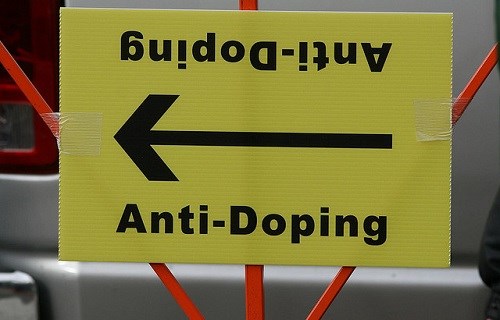RUSADA escapes sanctions for missing deadline
At a conference call on Tuesday 22 January, the WADA ExCo commission decided to follow the recommendation of the WADA Compliance Commission and not take further actions against RUSADA at the moment. The decision is conditional on a continued cooperation from the Russian institutions in case the collected data needs additional or re-testing.
RUSADA missed a 31 December 2018 deadline for the delivery of the requested access to lab data given by WADA in order for the Russian anti-doping agency to be fully reinstated following a suspension due to the revelation of widespread doping.
“Several members of the ExCo voiced their disappointment that the deadline had been missed but agreed that no sanction in that regard should be imposed. Above all, we want to ensure that those who cheated are held to account,” said WADA president Craig Reedie in a statement on the decision.
Disappointment with WADA’s decision has also been widely voiced from other sides and WADA’s next steps will be followed closely.
USADA director Tygart calls for a change of “a global system that holds athletes strictly accountable but allows states to corrupt the Olympic Games and perpetuate massive fraud on athletes and the public,” Tygart says in statement from the American anti-doping body on the recent decision.
While he is glad that the data was obtained, Tygart stresses the importance of transparency in the upcoming investigation “so that justice can finally be served for clean athletes and those who value fair play”.
Liam Morgan from Inside the Games argues that the “weak response” from bodies like WADA and the IOC towards the entire scandal “has opened a potentially irreparable chasm between athletes and officials”.
This chasm has become more and more articulated in recent months with a line of athletes and other observers lashing out at WADA for not living up to its task of protecting athletes.
Double standards
In response to yesterday’s RUSADA decision, Ali Jawad, British paralympic powerlifter, who has previously launched a call for an “athlete-led anti-doping revolution”, says that WADA’s credibility “is in tatters” after yesterday’s decision.
“WADA has imposed one set of rules for athletes, and another for Russia. Given this, the international athlete community is furious with WADA,” he writes on Twitter.
This view is echoed at the Institute for National Anti-Doping Agencies, iNADO, who finds that, while WADA currently needs support to move forward, these latest developments continue to cause for “serious concerns”.
“It is very clear that, in light of the most serious imaginable circumstances, Russia has been granted more chances and, ultimately, leniency than any individual athlete or small country could expect to receive. This is very troubling,” says an iNADO press release.
The perception of a WADA that has gone from investigating an institutional doping scheme in one of the world’s most important sports nations, to placing suspicion and focus on the individual athlete is further developed in a comment piece by Andy Brown on the website sportsintegrityinitiative.com.
“By focusing on sanctioning athletes and shifting its line on recognition of State doping, WADA has not got to the bottom of these allegations. Through inaction and back-pedalling, it has effectively given the signal that such behaviour is OK,” Brown says.
“What is certain is that once again, a regulator has created a bonanza for lawyers. Scrutiny will yet again be placed upon athletes rather than those that manipulate them. This is why athletes are angry about WADA decisions regarding Russia.”
The data collected by the WADA team will now be investigated in order to confirm its authenticity. This could take two to three months. Anti-doping breaches will then be directed to the relevant international federation for further action.






